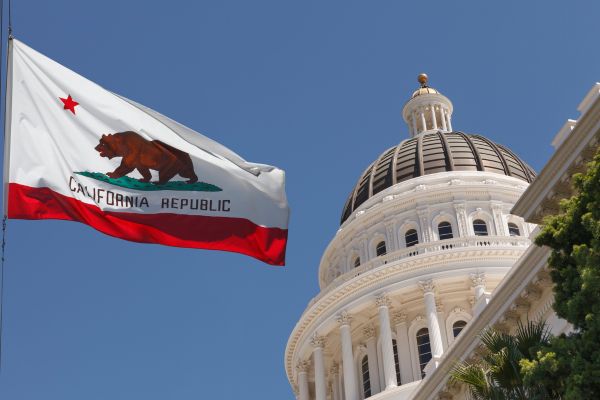
- Details
- By Chez Oxendine
Senate Bill 18, or the Tribal Housing Reconstitution and Resiliency Act, would amend California’s Health and Safety Code to include a fund aimed at building and rehabilitating affordable homes for California residents, per a state by Senate Majority Leader and Democrat Mike McGuire, who represents the state’s North Coast region.
“Tribal communities face a staggering housing crisis which is rooted in historic genocide and racism, under-investment and lack of eligible funding,” McGuire said in a statement. “To truly fix this public health crisis that exists in so many California tribal communities, the state must move with speed in partnership with tribal leaders to establish an exclusive tribal housing program with dedicated infrastructure funding. That’s why we’re working hand-in-hand with tribal leaders from across the Golden State to move SB 18 forward.”
McGuire pointed to dire straits for Natives across the state: 9 percent of California’s tribes have homes without complete plumbing, while 7 percent of tribes have homes that lack complete kitchens. Those issues are compounded by widespread poverty — more than one-third of tribal residents live below the federal poverty line, per McGuire’s statement.
Tribes attempting to address the issue through state support find themselves stymied by bureaucracy and conflicts with tribal sovereignty, McGuire writes. Some falter under stringent thresholds and compliance requirements, while others find existing state housing programs — many of which target broader populations instead of specific demographics such as Natives — unsuitable for their needs.
Under SB 18, the state would establish a Tribal Housing Grant Program Trust Fund, appropriated annually for a five-year period that would begin next January 1 and run through December 31, 2028. A legal consultant speaking to The Center Square estimated the fund would cost roughly $1 million a year to run and could garner as much as $100 million from the general budget each year.
The program has been designed in consultation with state tribes, McGuire writes, which helps tailor assistance to specific tribal needs. The approach has garnered support from many California tribes, including the Yurok Tribe, the Karuk Tribe, the Dry Creek Rancheria Band of Pomo Indians, and others, per McGuire’s statement.
“SB 18 would be a game changer for all California tribes and it is extremely important for Dry Creek Rancheria,” said The Dry Creek Rancheria Band of Pomo IndiansChair Chris Wright, speaking to Capitol Weekly. “We have such a huge need for housing and this would definitely help.”
The bill advanced from the Senate Appropriations Committee through a unanimous, 7-person vote on May 18, then passed the Senate on May 25. The bill now goes to the California State Assembly for a vote, though that date has not yet been announced.
More Stories Like This
Native News Weekly (August 25, 2024): D.C. BriefsUS Presidents in Their Own Words Concerning American Indians
Indigenous Actor Elaine Miles Reports Detention by Alleged ICE Agents
Happy Thanksgiving from Native News Online
Coming Up on Native Bidaské: Behind the Animation: Joey Clift Talks “Pow” and Native Storytelling
Help us tell the stories that could save Native languages and food traditions
At a critical moment for Indian Country, Native News Online is embarking on our most ambitious reporting project yet: "Cultivating Culture," a three-year investigation into two forces shaping Native community survival—food sovereignty and language revitalization.
The devastating impact of COVID-19 accelerated the loss of Native elders and with them, irreplaceable cultural knowledge. Yet across tribal communities, innovative leaders are fighting back, reclaiming traditional food systems and breathing new life into Native languages. These aren't just cultural preservation efforts—they're powerful pathways to community health, healing, and resilience.
Our dedicated reporting team will spend three years documenting these stories through on-the-ground reporting in 18 tribal communities, producing over 200 in-depth stories, 18 podcast episodes, and multimedia content that amplifies Indigenous voices. We'll show policymakers, funders, and allies how cultural restoration directly impacts physical and mental wellness while celebrating successful models of sovereignty and self-determination.
This isn't corporate media parachuting into Indian Country for a quick story. This is sustained, relationship-based journalism by Native reporters who understand these communities. It's "Warrior Journalism"—fearless reporting that serves the 5.5 million readers who depend on us for news that mainstream media often ignores.
We need your help right now. While we've secured partial funding, we're still $450,000 short of our three-year budget. Our immediate goal is $25,000 this month to keep this critical work moving forward—funding reporter salaries, travel to remote communities, photography, and the deep reporting these stories deserve.
Every dollar directly supports Indigenous journalists telling Indigenous stories. Whether it's $5 or $50, your contribution ensures these vital narratives of resilience, innovation, and hope don't disappear into silence.
 The stakes couldn't be higher. Native languages are being lost at an alarming rate. Food insecurity plagues many tribal communities. But solutions are emerging, and these stories need to be told.
The stakes couldn't be higher. Native languages are being lost at an alarming rate. Food insecurity plagues many tribal communities. But solutions are emerging, and these stories need to be told.
Support independent Native journalism. Fund the stories that matter.
Levi Rickert (Potawatomi), Editor & Publisher

